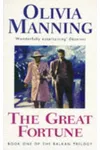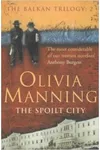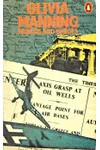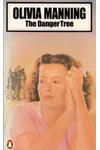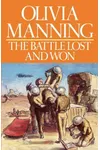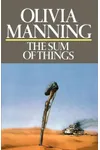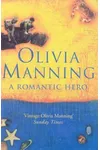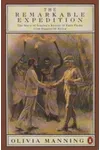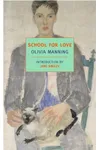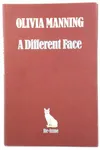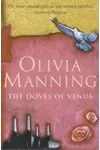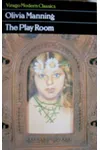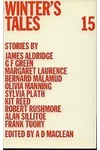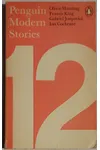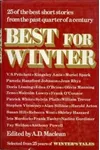Picture a British storyteller who turned the chaos of World War II into gripping, human tales—meet Olivia Manning! With her sharp wit and vivid prose, she chronicled love, loss, and survival in her masterful Balkan and Levant Trilogies. Often overshadowed in her time, Manning’s stories now shine as timeless gems, pulling readers into the heart of a world at war.
Born in 1908, Manning’s life was as adventurous as her novels. Her semi-autobiographical works, drawn from her own wartime escapes across Europe and the Middle East, blend raw emotion with keen historical insight. Let’s dive into the life and legacy of this unsung literary hero!
The Making of Olivia Manning
Olivia Mary Manning was born in Portsmouth, England, to a naval officer father and an Anglo-Irish mother, growing up with a sense of displacement she’d later call the 'Anglo-Irish sense of belonging nowhere.' Her early years split between England and Ireland fueled her knack for observing human quirks. After art school, she moved to London, where her first novel, The Wind Changes, hit shelves in 1937. In 1939, she married R.D. 'Reggie' Smith, a charismatic British Council lecturer, and their whirlwind romance swept them to Bucharest just as World War II erupted.
War shaped Manning’s life and work. Fleeing Nazi advances, she and Reggie hopscotched from Romania to Greece, Egypt, and Jerusalem. These harrowing journeys, filled with uncertainty, became the backbone of her most famous works, capturing the raw pulse of civilian life in wartime.
Olivia Manning’s Unforgettable Stories
Manning’s crown jewels are her two trilogies: The Balkan Trilogy (1960–1965) and The Levant Trilogy (1977–1980), collectively known as Fortunes of War. The Balkan Trilogy follows newlyweds Guy and Harriet Pringle—stand-ins for Manning and Reggie—as they navigate love and survival in Bucharest and Athens amid encroaching fascism. With razor-sharp dialogue and lush descriptions, Manning paints a world of expatriate cafes, political intrigue, and personal betrayals.
The Levant Trilogy picks up in Cairo, where the Pringles face Rommel’s desert advance. Here, Manning introduces Simon Boulderstone, a young soldier whose frontline experiences contrast with the civilian struggles of Harriet and her circle. Critics, like Anthony Burgess, hailed these works as 'the finest fictional record of the war produced by a British writer,' praising her ability to weave public chaos with private heartaches. Her style—crisp, unsentimental, and richly detailed—brings places like wartime Bucharest and Cairo to life, making readers feel the heat, fear, and fleeting joys.
Beyond the trilogies, Manning wrote novels like The Doves of Venus (1955), exploring love and ambition, and The Play Room (1969), a semi-autobiographical tale of adolescence. Her works often draw from personal experience, yet her imaginative flair elevates them into universal stories of resilience and human connection.
Why Olivia Manning Matters
Manning’s legacy lies in her unflinching portrayal of ordinary lives caught in extraordinary times. Her focus on civilian perspectives—cafe gossip, strained marriages, fleeting romances—offers a refreshing counterpoint to battle-centric war narratives. Though underappreciated in her lifetime, often overshadowed by peers like Iris Murdoch, her trilogies gained acclaim after her 1980 death, especially with the 1987 BBC adaptation of Fortunes of War, starring Kenneth Branagh and Emma Thompson.
Today, Manning’s work resonates for its emotional depth and historical vividness, earning praise from modern readers and critics like Sarah Waters. Her ability to capture the 'feel of fighting' and its impact on 'ordinary, undistinguished lives,' as the New York Times noted, cements her as a literary trailblazer. She’s a must-read for anyone craving stories that blend heart, history, and humanity.
- Born: March 2, 1908, Portsmouth, England
- Died: July 23, 1980, Isle of Wight
- Key Works: The Balkan Trilogy, The Levant Trilogy, The Doves of Venus
- Award: Appointed CBE in 1976
Ready to travel back to wartime Europe? Grab The Balkan Trilogy and lose yourself in Olivia Manning’s captivating world of love, loss, and survival!
